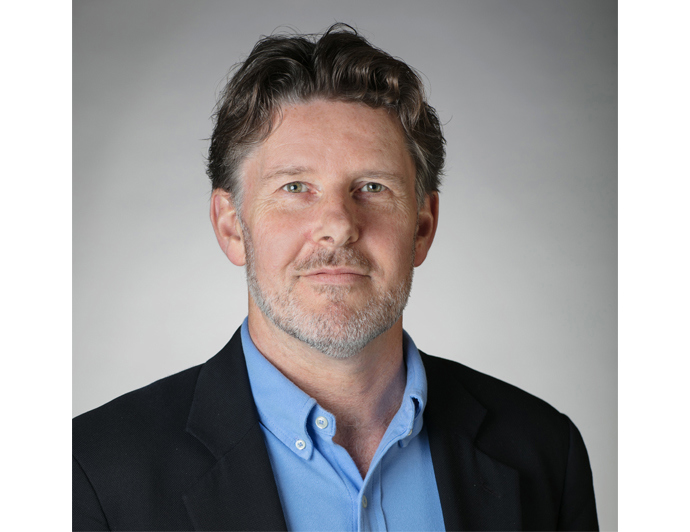Kellogg Europe President David Lawlor has seen great change during 30 years with the food giant. He tells our People & Culture Lead Áine Hurley about the ongoing push to improve innovation, inclusion and sustainability.
Although still very much the market leader in breakfast cereal, in some ways Kellogg is unrecognisable from the business it was three decades ago. Today, having diversified its portfolio through NPD and acquisition, notably the launch of its wholesome snacks range and the purchase of Pringles, it’s also a colossus in the snacks sector.

Having loyally stayed in Kellogg since starting out in junior sales and marketing roles in Ireland at the beginning of the 1990s, David Lawlor has worked across multiple markets and has seen numerous changes first-hand. And since assuming leadership of the FMCG group’s European operation, he has overseen a fair few of them too.
So, what are the biggest changes he’s observed? “One of the more obvious ones is the consolidation that has taken place. If you think of the amount of companies that have acquired each other’s brands or come together, all the fusion that has taken place, there has been an awful lot of consolidation on the brand side. The understanding of what is big has changed completely.”
Hand in hand with this has come expansion in several forms. First, the diversification into different segments, as evidenced by Kellogg’s move into snacks, including healthy choices. Alongside this has come greater geographic expansion.
“If I go back in time and think about how we were, our business was very much the legacy of the markets we first went to, which were the obvious places for an American company to go; the UK, Australia and Mexico” says David. “Now we have businesses of scale in places like Nigeria, Asia, Russia. It’s the same with our peers. Some very big companies have big percentages of their net sales located in very different places than, say, 30 years ago.”
Other significant changes David points to are the rise of specialist niche players and the segmentation challenges this poses for the more diversified giants; digitalisation and the emergence of data as a vital currency; and the speeding up of innovation that to a huge degree is a consequence of the data age.
“I’ve read that most innovation now lasts three years,” reveals David. “Previously it would have been, can this innovation last two decades?”
This “turbocharging of lifecycles” is certain to continue and technological advancements will impact the business in other critical respects. David makes the point that AI, for instance, will not only play a role in revolutionising manufacturing but will be harnessed for consumer engagement purposes too. A lot of work is currently under way at Kellogg on “where that takes us”.
Staying on the futurology theme, David says he is cautious regarding predictions about what will happen once the COVID corner is turned. “But what we do know is it’s a new cycle and from it will come new themes.
The challenge for us is, do we have our antennae appropriately tuned? We’re all going to pick up signals, but who’s going to pick them up fastest?
Or who will pick them up and connect them to their portfolio the fastest so consumers, customers see the delight and satisfaction of need that comes from that? That’s the piece that’s going to determine the winners and losers through this next cycle.”
David is optimistic about how Kellogg Europe will fare, having addressed organisational design and strategic priorities shortly before the pandemic emerged. “We made choices in our organisation in terms of what muscles we wanted to invest in as recently as 18 months ago.”
Inclusivity and sustainability both feature high on the agenda. Kellogg has a long track record in relation to the latter, having used recycled cardboard in its cereals packaging from the outset. But in recent years Kellogg has also been in the firing line due to the notoriously hard to recycle Pringles can.
To address the issue, the company has invested heavily in more environmentally friendly alternatives and is trialling a recyclable cardboard version of its iconic Pringles packaging with Tesco. “I’m proud of what we’re doing,” says David. “We’ve got more to do but I can assure you we are absolutely on it.”
Likewise, inclusivity is a topic David describes as close to his heart. Kellogg is a signatory to the LEAD pledge, a commitment to reach 50:50 gender representation for all leadership level roles by 2025. The company has also put in place a network of Business Employee Resource Groups (BERGs) composed of people keen to make positive change and create an open environment to talk about issues that affect colleagues.
The clear belief of the leadership team in Kellogg is that inclusivity enhances performance. David is quick to say that while the company has already done a lot in this area, he is keen to accelerate efforts, wanting the business to remain one of the leaders in Europe rather than sitting in the pack.
While Kellogg does well on diversity at both entry and leadership levels, “it’s in the middle of your organisation that this seems to go awry.” There are plans for more measurement and benchmarking, together with a review of employee benefits to ensure they are appropriate for a diverse 21st century workforce. But the glue holding it all together is a culture of encouragement and empowerment that’s being nurtured to ensure Kellogg walks the talk on hiring and promotion.
“Leadership 30 years ago was probably a top down thing,” observes David.
“Today leaders have learnt to empower their organisations, to listen to their organisations, to encourage them, to provoke them to expose and expand them.”
There’s a new kind of snap, crackle and pop in that thinking.



